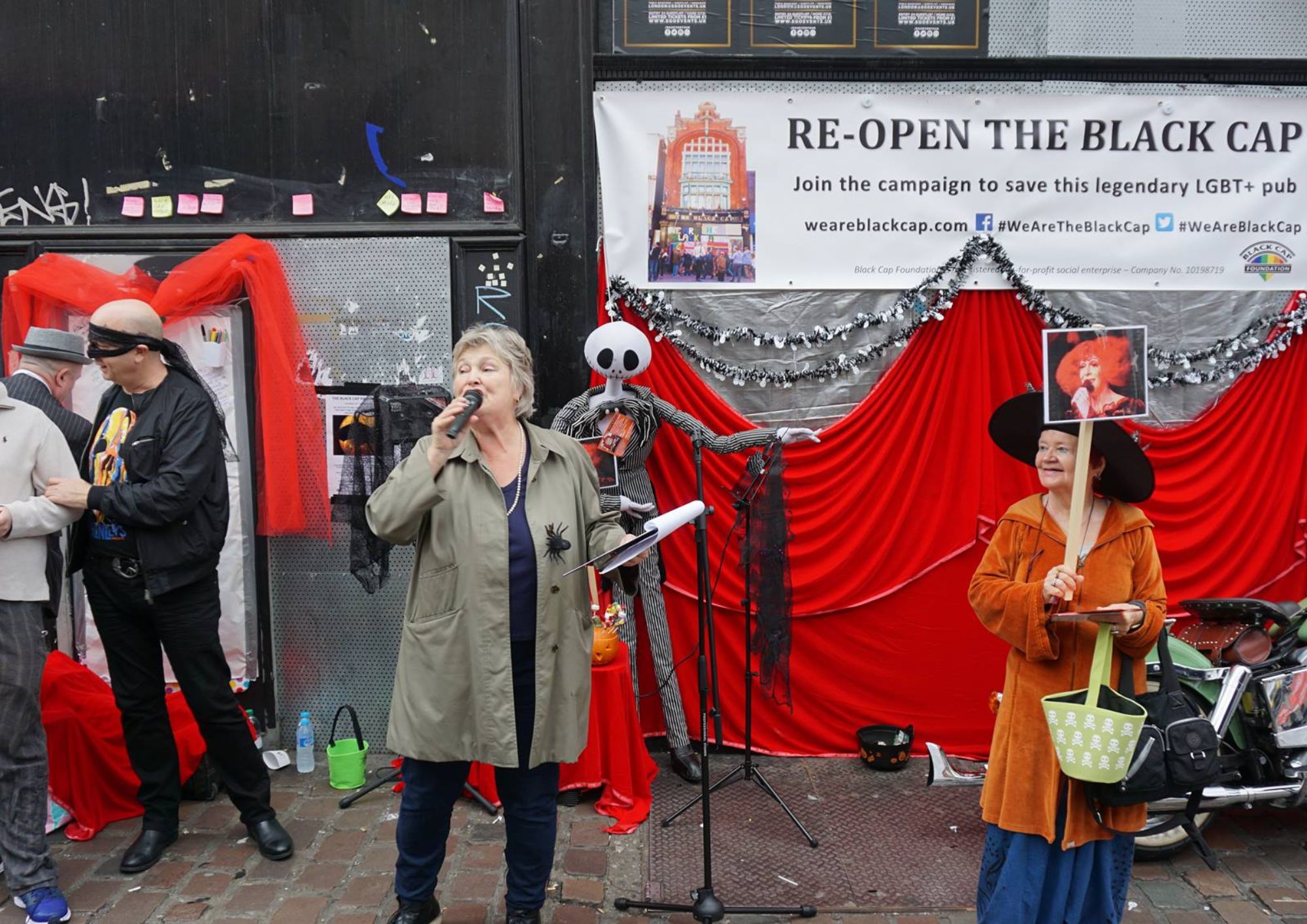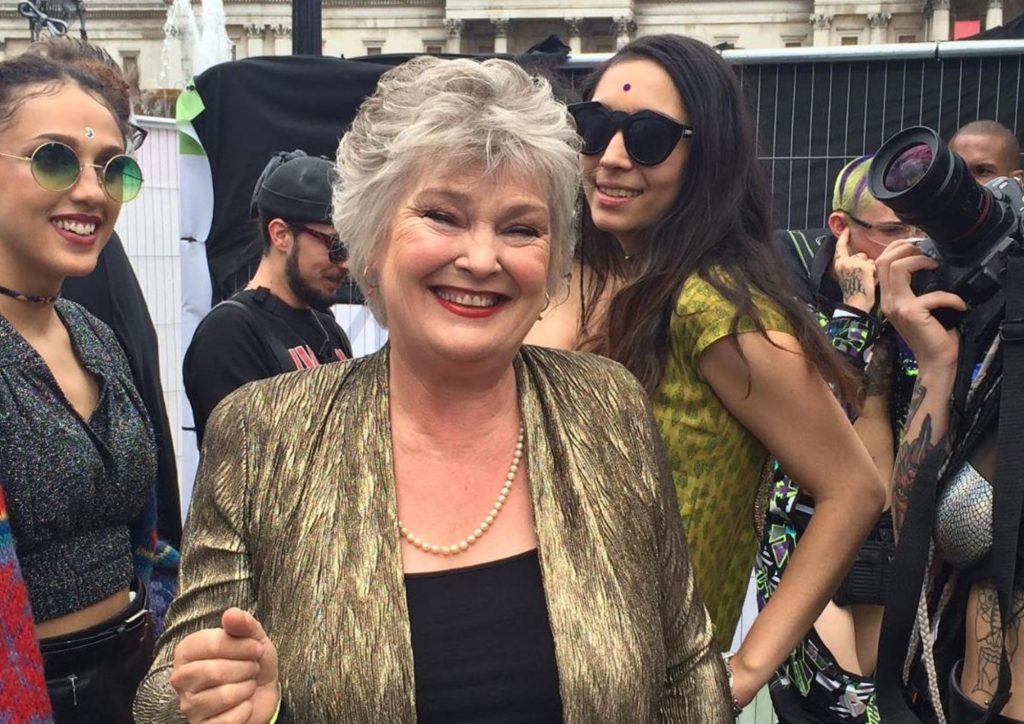LGBT+: There’s power in the poems
Trudy Howson is the LGBTQ+ Poet Laureate
Monday, 6th February 2023 — By Anna Lamche

Trudy Howson reciting a poem outside the closed down Black Cap pub in Camden High Street
POETRY may have a reputation for being exclusionary – but it can also be a “catalyst for social and political change,” according to the country’s first LGBTQ+ Poet Laureate.
Trudy Howson, who lives in Soho, was chosen for the role in 2016 by Camden LGBT Forum – the organisation now known as forum+ – and still holds the title.
During this time, she has written and performed poems celebrating the LGBT+ community across the country, appearing on live television, radio and in the national press.
“I’m a servant of my community,” Ms Howson said.
Her work addresses a wide range of subjects, from the horrors of the Holocaust to endangered LGBT+ venues, to bisexual visibility, as well as HIV and Aids.
“I’m not a highbrow poet. I write poetry that people get, they don’t have to have read fancy books,” she told the New Journal.
“I’m not interested in anything elitist or snobby. I think poetry had a terrible reputation for being intellectually elitist.” Instead, Ms Howson has long tapped into the political potential of poetry after a life as an activist.
“I was a soldier in the women’s army, and I was part of the first London Pride,” she said. “ I was very active in Women’s Right to Choose, Rock Against Racism and the Gay Liberation Front. During that whole period I was writing poetry – we were shouting it out in the streets.”

Trudy Howson
Upon becoming the LGBT+ Poet Laureate, Ms Howson said she “realised this post would enable me to use poetry as a catalyst for social and political change – poetry has a resonance that’s not just intellectual,” adding; “It can really sum up a lot of stuff in a very few words. Poetry is like a cordial. With this particular job my poetry gave me access to councillors, to mayors, to people who made decisions.”
She added: “My poetry’s been used in cross-party debates in parliament. A poem can sum a subject up in a few words, really crystallise the actual issue and change people’s hearts as well as minds.
“There’s a danger of getting too academic, but I think it’s something that can bring immense joy, as well as being challenging. It can stimulate thoughts that elevate us above the hum-drum routine of day-to-day life .”
Ms Howson has written poems for the Royal Shakespeare Trust, the NHS and Pride in Education.
“I’m trying to engender people feeling more interested and open-hearted about what it’s like to be LGBTQI+,” she said.
One of her poems, Save The Black Cap, was written in 2016 as part of a protest against the closure of the famous LGBT+ pub in Camden High Street.
“So many of our venues are closing,” Ms Howson said. “We move into an area and it becomes very popular, arty and creative and other people want to move in there – we are groundbreakers, because it takes courage to say you’re different, to not do what your parents might have done.”
According to Ms Howson, all her poetry is aimed at fostering kindness and tolerance. “It’s so important that people try to understand us and accept us and appreciate us,” she said, “We are a fabulous community. We offer a lot.”